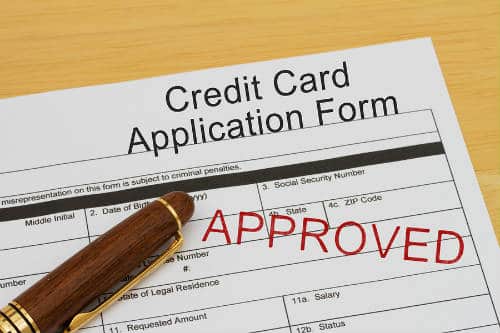Q: My application for a credit card was turned down. How can I get approved for a credit card?
A: Credit cards have become an integral part of our lives. Most people have more than one card and walk around with virtually no cash. However obtaining a credit card is not always as easy or straightforward as you may want to believe.
The way you apply for a credit card can influence the terms and conditions of your card, the card limit and fees, and even the chances of you getting approval for the card. Being rejected on your credit card application can be upsetting, especially if you were looking forward to using it on your next vacation, or maybe just as security in case of an emergency.
Some rejections are due to problems with your credit report, such as a history of bankruptcy or a couple of missed payments, others may be because of outstanding debt you have on your other cards. There are certain things that you can do before you apply for a credit card to help you avoid the rejection of your application.
-
Choose the right credit card for you
Before you even begin applying for a credit card, it is important to find out what type of card best suits your needs. Will you benefit most from a reward card that offers you cash back and other deals or is it more sensible to have a low-interest rate card?
Once you have decided what type of card you need, you can start shopping around to ascertain which companies are least likely to reject you. There is no point applying for a credit card if you have a credit score of 650, and the company’s cut-off score is 700.
-
Sort out your finances
Your credit score may give you a 3-digit rating based on your credit history, but it also takes recent spending habits more seriously than behavior from, say, 5 years ago. Therefore, if you can show that your habits have improved, credit card companies are more likely to approve your application.
This means paying your bills on time, if not early, to show that you do not default on payments. If you have other credit cards, consider paying your balance a few days before the statement is due to reduce the chances of you looking like you always max out your card.
-
Avoid applying for more than one card at a time
When you apply for a loan, the bank or other financial institution looks into your credit history to determine how much risk they will be undertaking. The same goes for credit card applications, except that with credit cards your request(s) can also impact your credit score.
This means that if you apply for two or three cards at the same time, you look like you are asking for a massive increase in credit in a short amount of time, which makes lenders nervous. To avoid this, it is advisable to wait at least 45 days between applications to help spread them out.
Each time you seek credit or a loan, an “inquiry” is generated on your credit report. Just remember that, according to FICO, people with six inquiries or more on their credit reports can be up to eight times more likely to declare bankruptcy than people with no inquiries on their reports. This is why it’s not a good idea to apply for many credit cards at once when you’re seeking a credit card approval.








